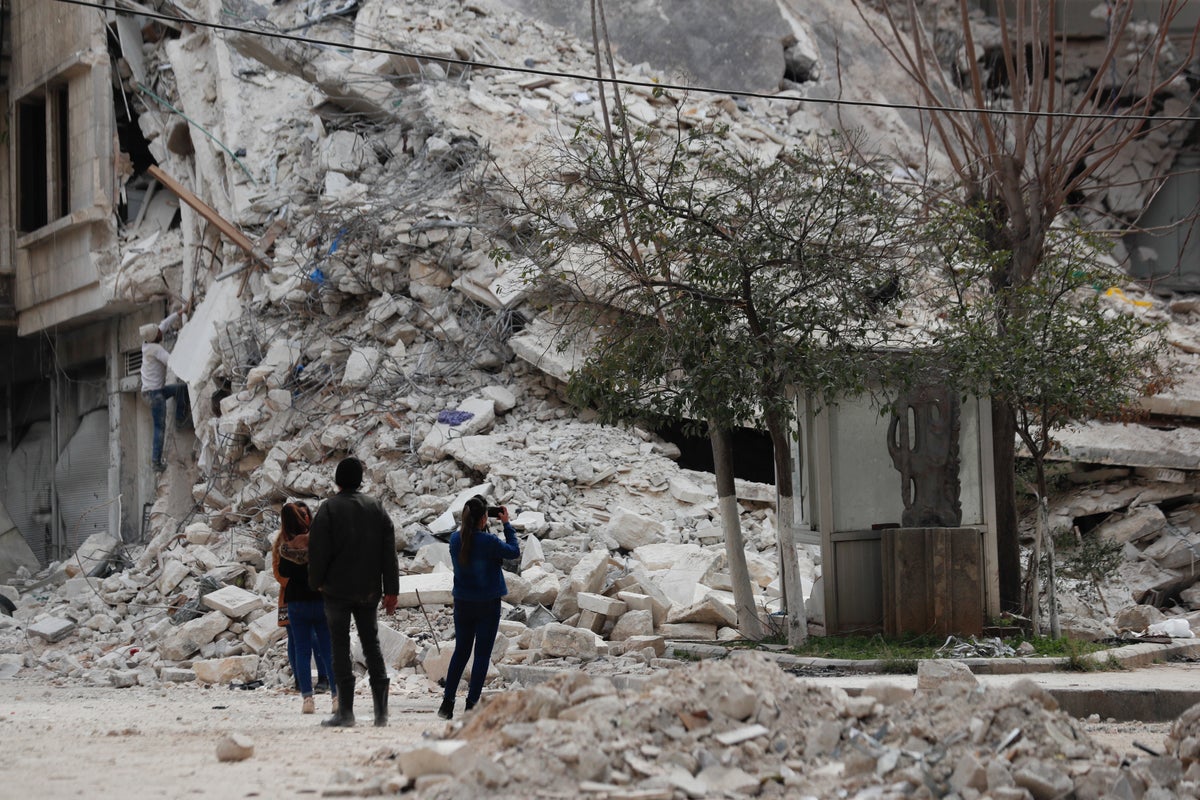
Reuniting children with their missing family has become a top priority in the aftermath of last month's massive earthquake that struck Turkey and Syria, the head of the U.N. children's agency said Wednesday.
UNICEF Executive Director Catherine Russell said the Feb. 6 quake that rocked southeast Turkey and parts of northern Syria has compounded existing crises in war-torn Syria.
“The first challenge is figuring out if (the) children’s parents are alive in some place, and if they are trying to reunite them,” she told The Associated Press, speaking at a school in the northern Syrian city of Aleppo.
Since the quake, the school has been turned into a shelter for families who lost their homes.
In Turkey, Derya Yanik, the minister for family affairs, said Wednesday that more than 1,800 “unaccompanied children” have been reunited with their families since the quake. Efforts were underway to identify 83 other children and reunite them with family members, Yanik said.
Some of the children who have not been identified were still in intensive care in hospitals in Turkey, she added, and more than 350,000 families had applied to foster children orphaned by the quake.
The Turkey-Syria earthquake killed at least 50,000 people and injured many more, according to the U.N. Tens of thousands still missing and hundreds of thousands homeless. In Syria, at least 6,000 were killed in total, in both government-controlled areas and in the rebel-held territory in the country's northwest. That region in the hands of Syrian rebels is home to 4.6 million people, many of them previously displaced by Syria’s war, was hardest hit in Syria,
Aleppo, Syria’s largest city and a financial hub before the war, witnessed some of the fiercest fighting in the nearly 12-year conflict that killed at least 300,000 people and displaced half the country's population of 23 million.
The earthquake further destroyed thousands of homes in Aleppo and elsewhere in Syria and decimated infrastructure as medical groups sounded the alarm on possible health crises breaking out in quake-hit areas.
“We need to make sure that children continue to get their education and that is very difficult,” Russell also told the AP.
Almost one month after the quake, many families are still living in schools, mosques, churches, and other makeshift shelters after their homes were destroyed. At the same time, Russel fears that keeping families in places such as the school-turned-shelter in Aleppo for a long period of time could see children fall behind in their education.
UNICEF is holding some classes at such shelters so children “don't drop out of school”.
“We need to make sure that children continue to get their education and that is very difficult,” she added.
Also Wednesday, the World Health Organization chief, Tedros Adhanom Ghebreyesus, visited the rebel-held northwest, crossing into Syria from Turkey to follow up on the needs of those affected by the earthquake.
Ghebreyesus visit to Syria was the second after a tour of the northern city of Aleppo last month after the quake.
“Even before the earthquake, needs were increasing while international aid was decreasing,” Ghebreyesus said at a press conference. “I call on the leaders of both sides of the Syrian conflict to use the shared suffering of this crisis as a platform for peace.”







